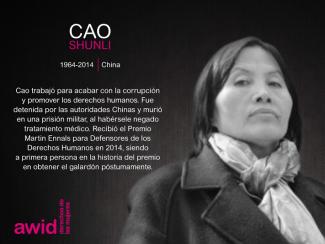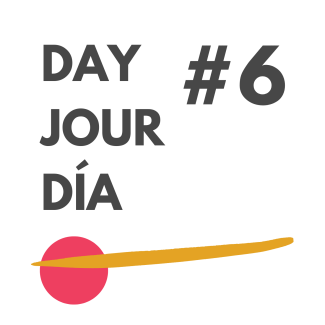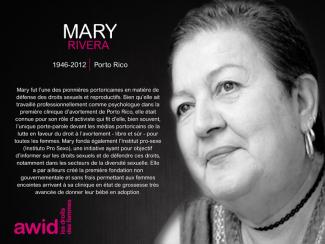Le produit de l’ensemble de votre recherche est maintenant organisé et révisé. Vous désirez maintenant que les résultats soient visuellement accessibles et attrayants afin d’en faciliter la diffusion.
Dans cette section
Mettez en forme votre rapport final en vue d’une diffusion publique
Pensez à élaborer des produits plus courts qui accompagnent le rapport complet.
Comme il a été mentionné à la section Synthétisez les résultats de votre recherche, l’AWID tire fréquemment des produits plus succincts du long rapport de recherche. Cela facilite une distribution plus vaste, particulièrement destinée à des publics clés.
Ne perdez jamais de vue votre population cible : qui lira votre rapport ?
Exemples de produits plus courts tirés du long rapport de recherche :
- Infographies
- Galerie en ligne
- Animation présentant vos arguments
1. Pensez comme pense votre public
Les gens sont constamment submergés d’information. Votre produit devra être visuellement percutant afin de maintenir l’intérêt de votre public. Ici encore, le fait d’avoir une idée précise de ce que vous souhaitez accomplir et de ceux et celles que vous voulez toucher permettra à la-au graphiste de créer des produits ciblés.
Un très long rapport en format PDF pourrait sembler être la seule façon de présenter votre recherche. Cependant, ce genre de document peut rebuter la plupart des gens, particulièrement s’il est affiché en ligne.
Si vous voulez partager votre produit avec une communauté en ligne, pensez à créer des mèmes (symboles culturels transmis de façon virale) et des infographies à diffuser dans les médias sociaux, les blogs et les plateformes Web.
Lorsque vous devez décider de créer ou non des produits plus courts, considérez la possibilité de diviser vos résultats en produits plus succincts que vous pourrez partager avec les populations ciblées ou encore à différents moments de l’année, pour susciter un intérêt renouvelé à l’égard de votre produit.
2. Collaborez avec un-e graphiste professionnel-le
Si avez peu de temps et un peu de ressources financières, nous vous recommandons d’embaucher une entreprise de conception graphique.
Pour des raisons économiques, il peut sembler tentant d’avoir recours au personnel interne pour mettre en forme votre produit. Cependant, un-e graphiste professionnel-le peut avoir d’énormes incidences sur l’aspect de votre produit final et sur les retombées qu’il peut avoir !
La-le graphiste (interne ou embauché-e) doit pouvoir :
- Vous présenter des exemples de son travail précédent qui correspondent à ce que vous recherchez.
- Vous fournir des conseils précis sur la manière de présenter votre recherche, en fonction du contenu que vous offrez et du public ciblé.
- Suggérer des composantes supplémentaires ou différentes pour mettre en forme votre produit.
Ce dont la-le graphiste aura besoin de votre part :
- Une idée générale de ce que vous voulez que le long rapport mette en évidence par des aspects visuels et graphiques (par exemple, les informations les plus importantes, les principaux constats) et certaines idées sur le type de produits plus succincts que vous souhaitez créer (par exemple, un dépliant, une infographie, une série de mèmes (symboles) viraux. Si possible, présentez-lui des exemples de documents semblables produits par d’autres organisations.
- Votre budget et votre calendrier de travail.
- Les lignes directrices sur l’identité visuelle de votre organisation, le cas échéant (logo, couleurs officielles, polices, etc...).
- Quelques photos, libres de droits d’auteurs ou l’accès à votre banque de photos, le cas échéant.
- Les principaux éléments visuels qui doivent être inclus : graphiques, tableaux et autres pièces visuelles tirés de votre recherche.
Les graphistes sont des spécialistes du design visuel. Ils/Elles n’ont pas forcément de connaissances dans le domaine des droits des femmes et ne sont pas au fait des résultats de votre recherche, particulièrement si vous travaillez avec un prestataire externe. Indiquez-leur clairement quels sont les éléments importants du rapport et le public que vous ciblez.
En fonction de ces détails, la personne chargée du graphisme suggérera des moyens de mettre en exergue ces éléments et rendra l’ensemble du produit attrayant.
3. Veillez à la cohérence
Lorsque vous créez une série de produits plus succincts, n’oubliez pas de les lier les uns aux autres :
- Un rapport sommaire qui se concentre seulement sur les résultats finaux et les recommandations devra fournir un lien vers le rapport complet.
- Une infographie visuellement attrayante qui transmet un message sur la situation du financement dans le cadre de votre recherche peut afficher un lien vers votre site Web et la section où se trouve le rapport complet. Elle doit être accompagnée d’un appel à partager l’information dans les médias sociaux.
- Une courte vidéo d’animation qui se sert des données, des résultats et des recommandations de votre rapport doit afficher un lien vers les sites Web ou les réseaux sociaux qu’utilise votre organisation.
- Une série de mèmes viraux, qui peuvent être diffusés en ligne, doit afficher un lien vers le rapport, les infographies, le rapport sommaire, etc.
Il est également important d’assurer la participation du personnel afin que ses membres puissent garantir que tous les produits dérivés demeurent fidèles aux résultats de la recherche.
Haut de page
Contrôlez la qualité des traductions
Si vous avez modifié le texte une fois que la conception graphique et la mise en forme du rapport de votre recherche ont été finalisées, assurez-vous de faire parvenir ces changements aux traducteurs-trices.
Si vous créez des produits plus succincts, vous devrez aussi les traduire lorsqu’ils auront été conçus et mis en forme. Ces traductions doivent être suffisamment claires pour permettre à la personne chargée du graphisme de la mettre en page, même si elle ne parle pas la langue.
Après la traduction du produit et avant de le partager, assurez-vous de faire revoir le document par une personne dont la langue maternelle est celle dans laquelle le produit est présenté.
Haut de page
Étape précédente
7. Synthétisez les résultats de votre recherche
Étape suivante
9. Parlez-en au monde entier !












